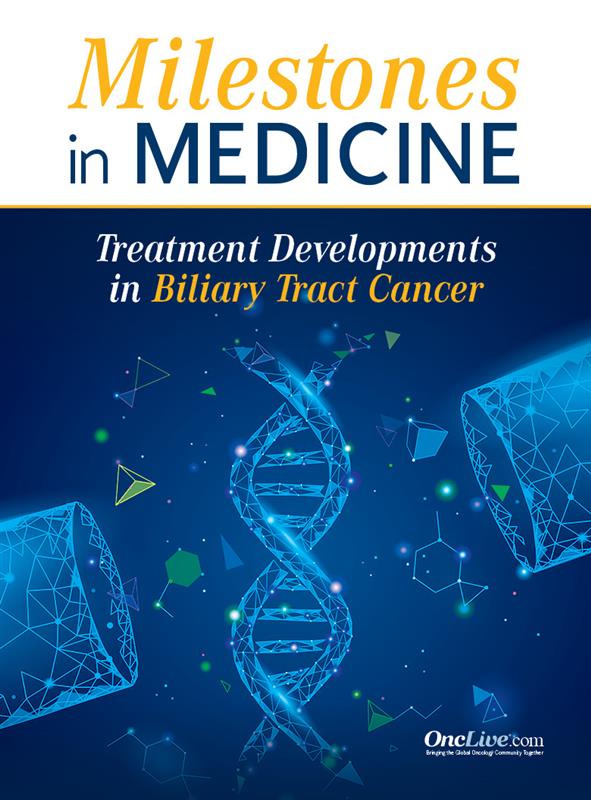Dr. Yarchoan on Gemcitabine and Cisplatin Combination Therapy Biliary Tract Cancer
Mark Yarchoan, MD, discusses the addition of durvalumab (Imfinzi) to gemcitabine and cisplatin in biliary tract cancer.
Mark Yarchoan, MD, associate professor of Oncology, Johns Hopkins Medicine, discusses the addition of durvalumab (Imfinzi) to gemcitabine and cisplatin in biliary tract cancer.
The phase 3 TOPAZ-1 trial (NCT03875235) evaluated durvalumab or placebo in combination with gemcitabine and cisplatin in patients with advanced biliary tract cancer.
The addition of durvalumab to gemcitabine and cisplatin displayed superiority vs gemcitabine and cisplatin alone, Yarchoan says. Despite TOPAZ-1 being a positive study, the added benefit of durvalumab was modest, with the median overall survival prolonged by about 1 month in the experimental arm vs the placebo arm, Yarchoan explains. Response rates and progression-free survival were also improved with the addition of durvalumab vs placebo, and the triplet could become a standard-of-care option for patients with advanced biliary tract cancer, Yarchoan adds.
Though the durvalumab-based combination was well tolerated, it may not be the optimal therapy for all patients with advanced disease, Yarchoan adds. The addition of nab-paclitaxel (Abraxane) to gemcitabine and cisplatin showed promising results in a phase 2 trial (NCT02392637), and the triplet will now be investigated in a randomized phase 3 study (NCT03768414), Yarchoan explains. Nab-paclitaxel, gemcitabine, and cisplatin could also have a role in patients who have locally advanced or borderline resectable disease, Yarchoan concludes.




